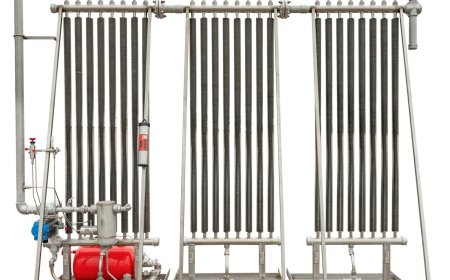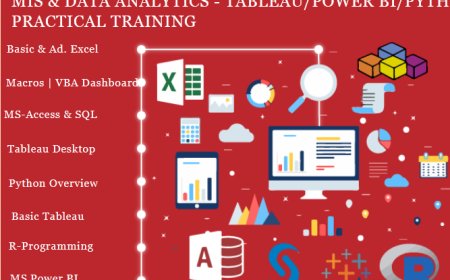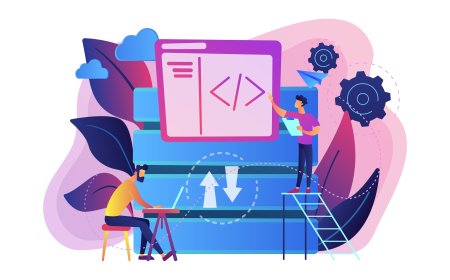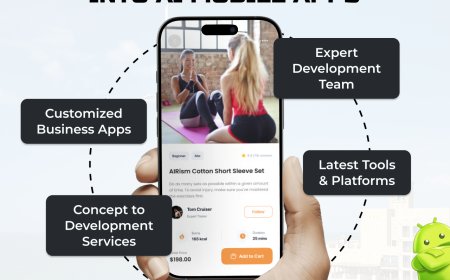How an IOP Program Supports Dual Diagnosis Treatment
Discover how an IOP program supports recovery for dual diagnosis—treating both mental health and substance use disorders through integrated, flexible care.

For individuals facing both a mental health disorder and a substance use issue, recovery can be more complex and challenging. This combinationknown as dual diagnosis or co-occurring disordersrequires an integrated and multifaceted treatment approach. One of the most effective paths forward for managing dual diagnosis is an iop program, or Intensive Outpatient Program. These programs offer targeted, flexible care that addresses both conditions simultaneously, promoting long-term recovery and emotional stability.
What Is Dual Diagnosis?
Defining Co-Occurring Disorders
Dual diagnosis refers to the presence of both a mental health disorder and a substance use disorder in the same individual. Common combinations include:
-
Depression and alcohol use
-
Anxiety and stimulant use
-
PTSD and opioid use
-
Bipolar disorder and cannabis dependence
Each condition interacts with the other, often worsening symptoms on both sides. Substance use can mask or intensify mental health symptoms, while untreated mental health issues can drive substance use as a form of self-medication.
Why Integrated Treatment Is Critical
Treating only one disorder while ignoring the other is often ineffective. For instance, treating addiction without addressing underlying anxiety may result in relapse. Similarly, treating depression without addressing substance use may lead to continued instability. An integrated approach like that provided in an iop program is essential for success.
What Is an IOP Program?
Core Structure
An iop program typically involves structured therapy three to five times per week, with sessions lasting around three hours each. Clients receive intensive care without needing to stay overnight, making IOP ideal for individuals who still need to attend school, work, or care for their families.
Services Offered
IOPs for dual diagnosis offer:
-
Group therapy focused on both addiction and mental health
-
Individual therapy for personalized support
-
Psychoeducation sessions
-
Skills training for emotional regulation and relapse prevention
-
Medication coordination when appropriate
This multifaceted model ensures that both conditions are treated concurrently in a supportive and structured environment.
How IOPs Treat Mental Health and Addiction Together
Shared Treatment Goals
A key strength of an iop program for dual diagnosis is its coordinated treatment plan. Instead of seeing one provider for substance use and another for mental health, clients receive cohesive care aimed at:
-
Stabilizing mental health symptoms
-
Reducing or eliminating substance use
-
Addressing triggers and trauma
-
Teaching healthy coping mechanisms
-
Preventing relapse
Addressing Root Causes
IOPs dont just focus on surface-level behaviors. Instead, they aim to uncover the deeper emotional, psychological, and situational causes behind both the substance use and mental health symptoms. This may include unresolved trauma, chronic stress, or undiagnosed mental illness.
Behavioral Therapies
Evidence-based therapies such as Cognitive Behavioral Therapy (CBT) and Dialectical Behavior Therapy (DBT) are commonly used in IOPs. These approaches help clients:
-
Identify unhelpful thought patterns
-
Replace destructive behaviors with healthier ones
-
Build distress tolerance
-
Improve interpersonal skills
These therapies are effective for both addiction and mental health, making them perfect for dual diagnosis treatment.
Benefits of IOP for Dual Diagnosis Clients
Increased Structure and Support
For individuals juggling two conditions, structure is vital. An iop program offers routine, consistent therapy, and accountability, which can reduce emotional chaos and impulsivity.
Peer Connection
IOP groups often include others facing similar struggles. Hearing from peers with dual diagnoses fosters understanding, reduces isolation, and builds community.
Flexibility to Maintain Responsibilities
Unlike inpatient care, IOPs allow individuals to live at home. This flexibility enables them to continue working, going to school, or caring for childrenwhile still receiving intensive treatment.
Gradual Integration into Daily Life
Since clients remain in their communities, they can immediately begin applying what they learn in real-life situations. This strengthens recovery skills and highlights any areas where extra support may be needed.
Family Involvement
Many IOPs include family education or therapy sessions. These help loved ones understand dual diagnosis, learn to set boundaries, and develop more effective ways to support recovery.
Common Challenges in Dual Diagnosis Treatmentand How IOPs Help
Denial or Misdiagnosis
Its not uncommon for individuals with dual diagnoses to deny one part of their condition. For example, someone might accept their anxiety diagnosis but reject that they have a drinking problem. An iop program helps through motivational interviewing and psychoeducation, gradually increasing self-awareness and readiness to change.
High Risk of Relapse
People with co-occurring disorders have a higher risk of relapse, especially if both conditions arent treated. IOPs offer relapse prevention education tailored to dual diagnosis clients, helping them identify cross-triggers and build a strong safety net.
Medication Management
When both substance use and mental health are in play, prescribing medication requires careful oversight. Many IOPs work closely with psychiatric providers to manage medications in a way that supports sobriety and mental health recovery.
Emotional Dysregulation
Clients may struggle with emotional swings, anger, shame, or impulsivity. Skills-based therapies in an iop programsuch as DBTare particularly effective at teaching emotional regulation and improving resilience.
What to Expect in a Dual Diagnosis IOP Program
Initial Assessment
The process begins with a comprehensive evaluation. This includes history of substance use, mental health symptoms, past treatment attempts, family history, and current lifestyle factors. Based on this, a personalized treatment plan is developed.
Group Sessions
Group therapy focuses on:
-
Relapse prevention strategies
-
Managing cravings and urges
-
Emotional regulation
-
Coping with trauma and stress
-
Building healthy relationships
Groups are led by licensed professionals and offer a balance of structure, support, and open sharing.
Individual Counseling
Each client typically meets weekly with a dedicated therapist who tailors interventions to the clients specific needs. Individual therapy is where deeper emotional work and goal setting take place.
Psychoeducation
Education sessions provide tools and knowledge about:
-
How mental illness and addiction interact
-
Effects of substances on the brain
-
Managing triggers
-
Understanding mood disorders, trauma, or anxiety
Education empowers clients to take control of their recovery.
Optional Family Therapy
Family involvement can strengthen recovery outcomes. Sessions may focus on communication, trust rebuilding, and understanding the unique challenges of dual diagnosis.
How to Know If You Need a Dual Diagnosis IOP
You might benefit from an iop program for dual diagnosis if:
-
Youve been diagnosed with both a mental health and substance use disorder
-
Youve tried traditional therapy without success
-
Your symptoms make it hard to function at work or in relationships
-
You experience frequent emotional outbursts, isolation, or crises
-
You relapse often despite wanting to stay sober
-
Your therapist or doctor recommends a higher level of care
Frequently Asked Questions
Q: Can I receive both mental health and addiction treatment in the same IOP?
A: Yes. Dual diagnosis IOPs are specifically designed to treat both conditions at the same time using integrated care models.
Q: How long does a dual diagnosis IOP last?
A: Most programs last between 6 to 12 weeks, depending on progress and needs. Duration can be adjusted based on clinical recommendations.
Q: Will I have access to psychiatric medications during IOP?
A: Many IOPs offer or coordinate medication management. Youll work with a psychiatrist or prescribing provider as needed.
Q: Can I work or attend school during IOP?
A: Yes. Programs offer flexible scheduling, including morning, evening, or weekend sessions, to accommodate daily responsibilities.
Q: What happens after I finish the IOP?
A: After completing the program, youll transition to outpatient therapy, medication management, or ongoing support groups to maintain stability and growth.
Conclusion
Dual diagnosis is complexbut with the right support, recovery is entirely possible. An iop program offers targeted, flexible, and effective care for those managing both mental health and substance use challenges. Through evidence-based therapies, supportive peer interaction, and coordinated treatment planning, IOPs empower individuals to heal in both mind and body. If you or a loved one is facing co-occurring disorders, consider reaching out for an assessment and begin the journey toward comprehensive, lasting recovery.


























































